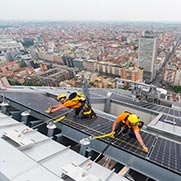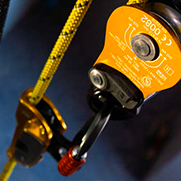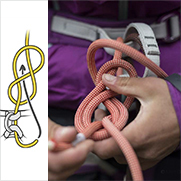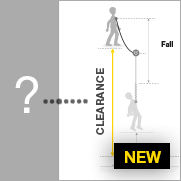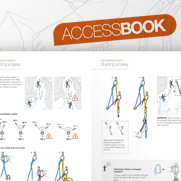Installing Ropes
Warnings
- Carefully read the Instructions for Use used in this technical advice before consulting the advice itself. You must have already read and understood the information in the Instructions for Use to be able to understand this supplementary information.
- Mastering these techniques requires specific training. Work with a professional to confirm your ability to perform these techniques safely and independently before attempting them unsupervised.
- We provide examples of techniques related to your activity. There may be others that we do not describe here.
Load-sharing anchors with the rope
Bunny knot (for load-sharing anchors)
Special case: isolate a section of damaged rope with a butterfly knot
Stopper knot
Fixed anchor
Releasable anchor
Protecting the Rope
On an angle
On a flat/hard surface
On a soft surface
Permanent anchors
Temporary anchor
Load-sharing anchors with a sling
Effect of the angle on a load-sharing anchor
Temporary adjustable anchors
To wrap around an existing structure by precisely adjusting the length of the anchor.
Large structures
Structures requiring specific positioning
Temporary anchors with multiple configurations
To best adapt to a situation, whether by connecting directly to the anchor, or connecting to a structure by wrapping around it or using a choker hitch.


